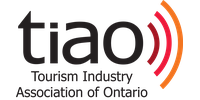Activity
-
Şimal Görmüş posted an articleTIAO joins Faster Together campaign to help step up vaccination rates across Ontario and Canada see more
TIAO is excited to join the Faster Together campaign to help step up vaccination rates across Ontario and Canada!
What is Faster Together?
Spearheaded by Bruce Anderson (Chairman of Abacus Data and Partner at Spark Advocacy) and Hassan Yussuff (President of the Canadian Labour Congress), the Faster Together campaign is a voluntary effort of people and organizations across Canada. It works to promote COVID-19 vaccine acceptance to help speed up recovery from the COVID-19 pandemic. To help partnering organizations and decisionmakers across Canada tailor their messaging, the campaign shares innovative public opinion data monitoring evolving views on vaccine hesitancy. Driven by its data, the campaign makes digital materials and social shareables, which Faster Together partners disseminate.
TIAO joins over 200 partners (and counting) across the country—including organizations from tourism and hospitality, retail, entertainment, business and finance, tech, postsecondary, and manufacturing sectors—to promote the message that getting vaccinated can bring us all back together faster.
Why is TIAO a partner of Faster Together?
The tourism industry is built on creating personal and shared experiences – memories which cannot be fully captured or replicated by Zoom. Despite the incredible innovation demonstrated by our industry, tourism in Ontario has largely been on pause for the last fifteen months with our businesses enduring revenue losses, layoffs, and job losses. As the hardest hit industry, restarting our tourism industry is directly linked to vaccination rates and case counts. By encouraging everyone to do their part and get vaccinated, Ontario’s tourism and hospitality businesses can begin to restart, recover, and welcome visitors back to rediscover what Ontario has to offer.
TIAO is proud to join Faster Together to help open our doors again, bring people together again, and create shared experiences again. Faster.
-
Şimal Görmüş posted an articleTIAO submits consultation feedback supporting this amendment and the gains it will offer businesses see more
From June 1-15, Ontario’s Ministry of the Attorney General held a public consultation to amend the Liquor Licence Act. The proposed amendment to Regulation 718 would remove the 360L cap on liquor that licensed representatives of manufacturers are permitted to store at their licensed premises for the purposes of delivering purchase orders.
In support of Ontario’s 200,000 tourism businesses—including restaurants, event planners, trade shows, travel accommodations, and suppliers—TIAO was pleased to submit consultation feedback supporting this amendment and the gains it will offer both businesses and customers. Amending Regulation 718 would reduce regulatory burden, offering greater flexibility to store beverage alcohol product at the manufacturer’s location when purchased by licensees.
What does this mean for businesses? Extra storage availability for licensees who have limited on-site space to store liquor (an issue especially in densely populated areas) and a more reliable supply of liquor to keep up with customer demand. As the province reopens and businesses and vendors look to meet Ontarians’ pent-up demand for dining, travel, and events, having a more reliable supply of liquor would help to ensure that tourism businesses are able to maximize their profit gains wherever possible.
As tourism and hospitality businesses begin to reopen after fifteen months of closures and unprecedented levels of revenue loss, the amendment to Regulation 718 would help support their recovery and rebuild.


